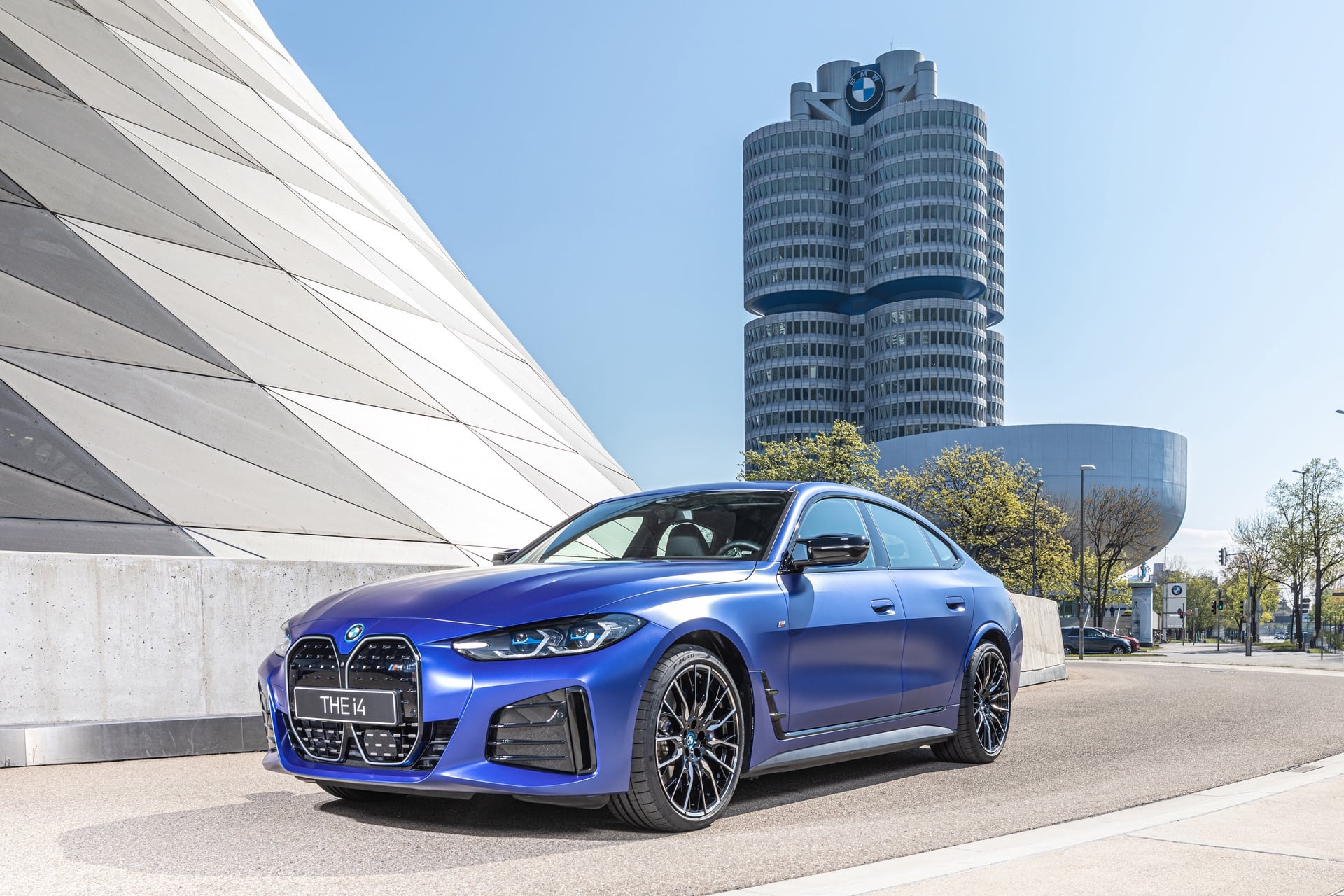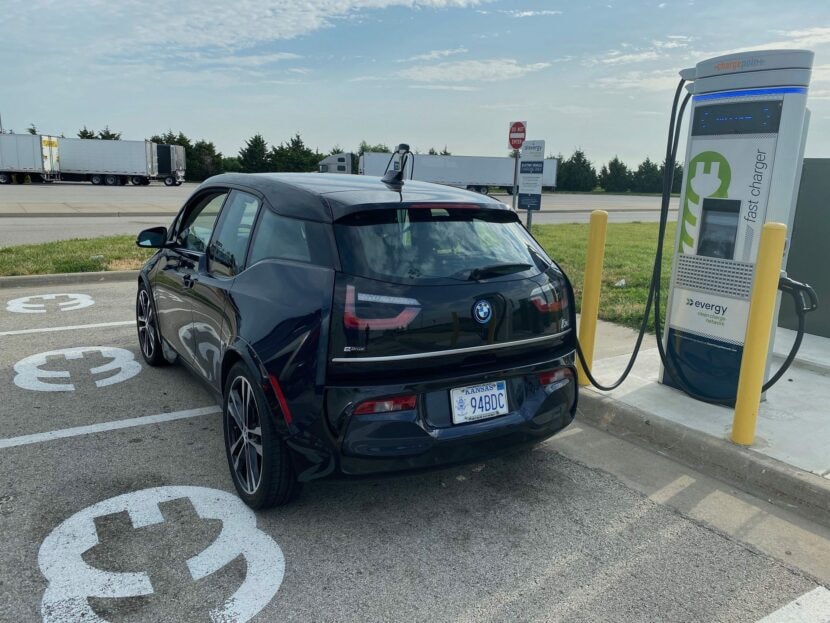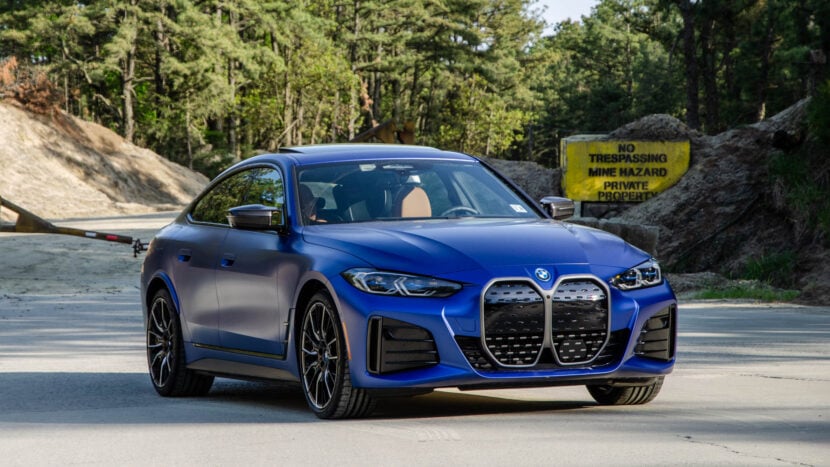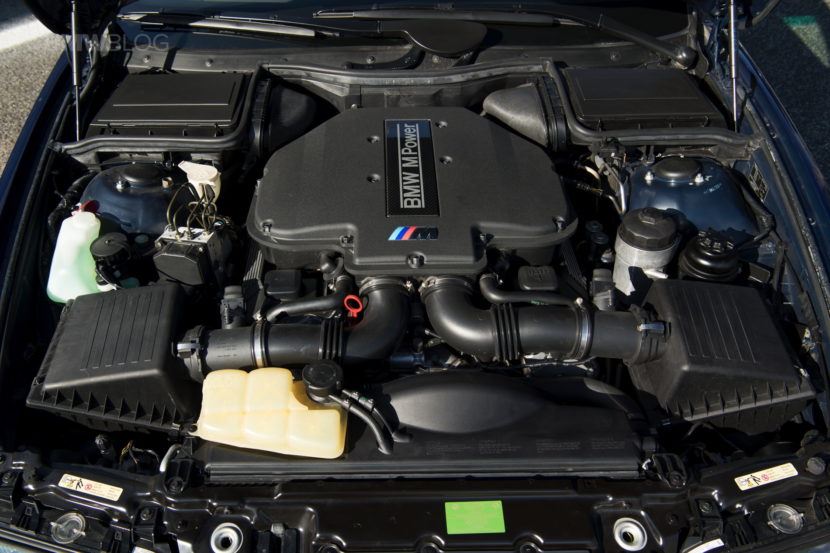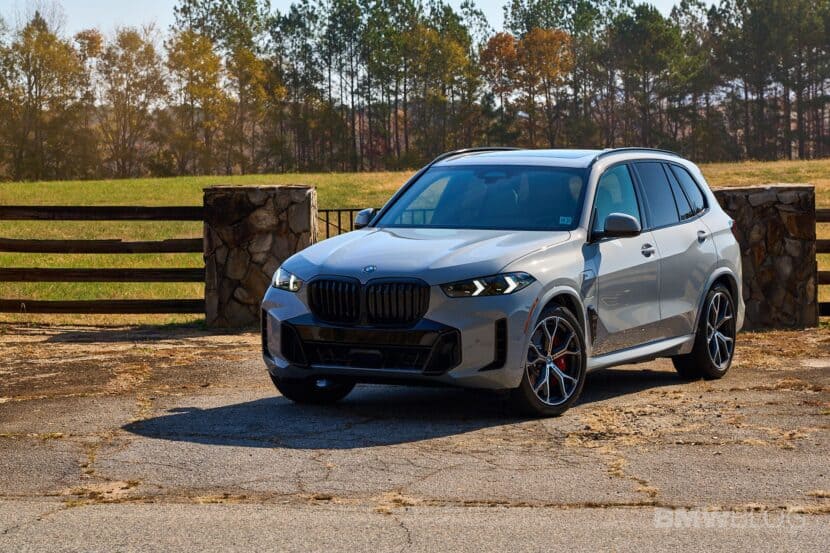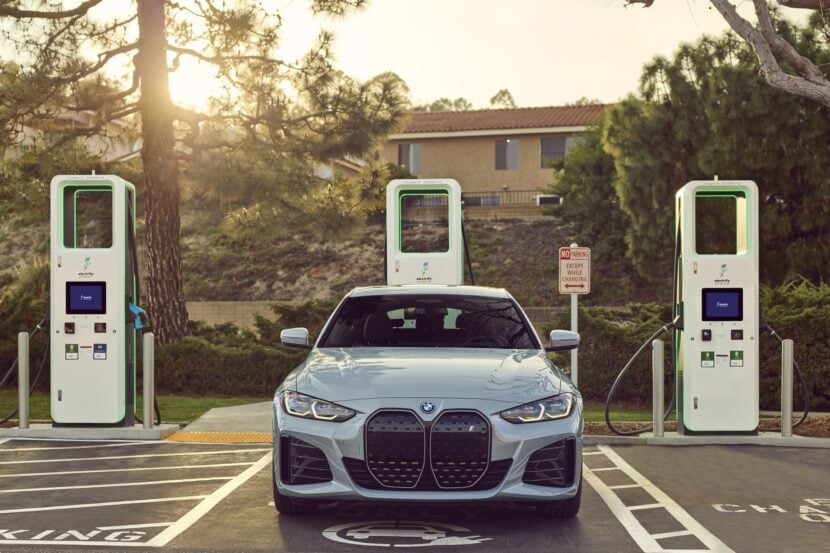In Q3 of 2022, BMW saw a new high for electric vehicle sales. A total of 4337 fully-electric vehicles were retailed in Q3, up from around 2600 in Q2. That’s a big jump, and it’s just the beginning. The i7 is entering production and more hybrid vehicles are on the way than ever before. Things are moving quickly, and it’s probably got even diehard petrol heads considering: is it time to buy a BMW EV?
It’s a topic worth thinking about. Even as someone who heavily favors the unique joys of internal combustion engines, I’ve considered it myself. Between the unpredictability of gas prices, the stunning performance of vehicles like the i4 M50, and the alluring aspect of the mechanical simplicity EVs offer, one begins to wonder. But there are a lot of things to consider before plunging headfirst into EV ownership.
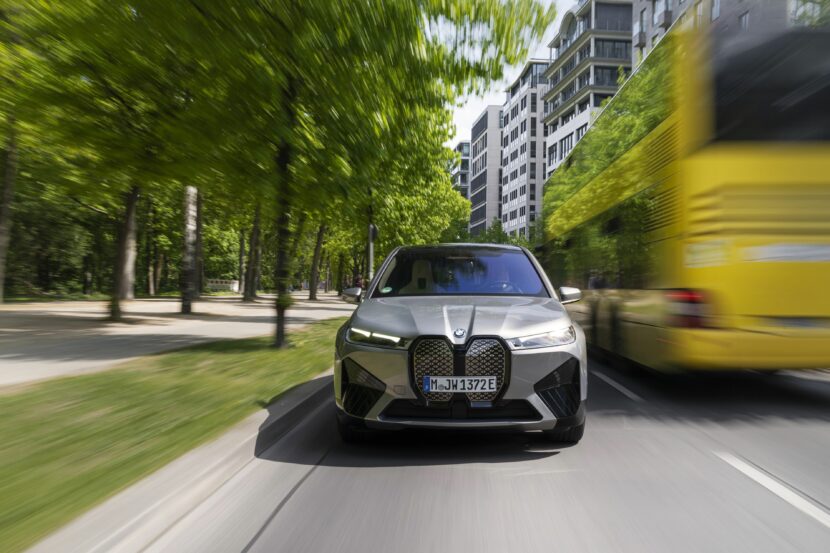
Is a BMW EV Cost Efficient?
Well, sort of. Many EVs are more expensive than their gas-powered counterparts. The BMW i4 M50, for example, starts at $67,300 whereas a gas-powered M440i starts nearly $10,000 lower – $57,450. You can argue that the difference gets made up at the pump – but that’s tricky. Some quick math suggests that somewhere around 55,300 miles – roughly 2,212 gallons of gas later – you’ll have spent that $10,000 in gas. That’s assuming gas prices stay at today’s US average – $4.52 for a gallon of premium.
What About ADM/Market Adjustment/Markups?
Yeah, well, they’re out there. Unless you ordered your BMW EV a long time ago, you’re probably buying a vehicle that was ordered by a pre-order customer who got tired of waiting. There’s probably going to be an ADM, and it’s probably going to range from $5,000 – $10,000. They’ll probably budge if you ask, but just remember that it’s definitely making it less and less pragmatic from a cost perspective.
Is Maintaining a BMW EV Cheaper?
In theory, maintaining a BMW EV should be cheaper. Engine oil changes become a thing of the past, and major engine services disappear. But brakes, cooling systems, and HVAC systems will still need servicing, and there’s nothing indicating they will be any less expensive to fix than their petrol-powered counterparts.
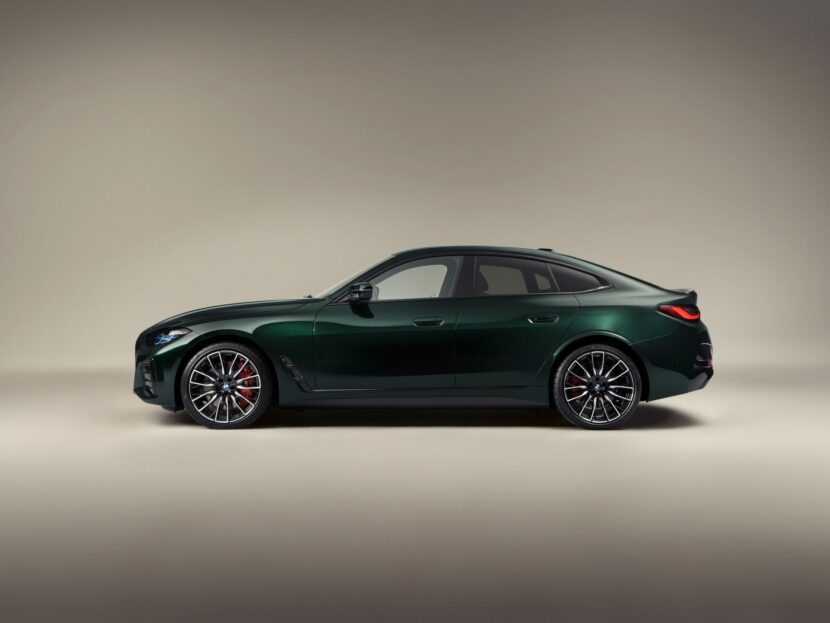
How Will I Ever Get Anywhere With Only 300 Miles of Range?
BMW’s electric vehicles offer close to – or over – 300 miles of range. I’m fine with that, and I think most people are too if they’re being realistic about it. The average mileage per year for Americans is around 13,500 miles – or roughly 36 miles per day. A BMW electric vehicle fits into that niche nicely, and for that reason, I believe range anxiety should not hold you back from purchasing a BMW EV.
What About Charging My BMW EV? Can I Use the Supercharger Network?
No, you can’t use the Supercharger network. You’re either charging at home or using the current public charging infrastructure. Not ideal, but it’s improving. Charging is steadily getting more expensive, and although it’s still far removed from gas prices, it’s not free. Luckily, BMW has partnered with Electrify America to offer some free Level 3 (DC fast) charging for new EV buyers – check with your client advisor to learn more. Also, if you’re charging at home, make sure your house’s wiring can handle it.
Is Charging Easy?
Well…sort of. The logistics are simple: plug it in. Charging stations themselves, however, run the gamut from being seamless and convenient to being randomly out of service at the worst possible moment. As a rule, areas with a high and dense population will have a better-maintained charger network than other areas. That said, it’s still kind of a coin toss – there simply is not as much interest in maintaining the charger network as there is in constructing it.
Are There ANY Advantages to Buying a BMW EV?
Oh yeah. They’re all very, very fast vehicles. The i4 and iX are decent-looking vehicles and definitely have a road presence. They’re new, so they all benefit from a 3-year/36,000 miles no-cost maintenance schedule, a 4 years/50,000 miles limited warranty, and a high-voltage lithium-ion battery warranty of 8 years/80,000 miles. Android Auto and Apple CarPlay work great, and iDrive 8 is impressively powerful. There’s a level of exclusivity, too – as there simply aren’t many out there and so many have been reserved for so long.
Why a BMW EV? What About Tesla, Volvo, the Nissan Leaf? They’re All Fast, Right?
Well, you’re on BMWBLOG, so hopefully, I won’t have to sell you on this too hard. The i4 and iX, specifically, offer excellent performance in all metrics – not just straight-line quickness. Dynamically, BMW is above and beyond the competition – save maybe competition from the Porsche Taycan, a vehicle far removed in terms of price.
BMW has taken tons of precautions to ensure these first-generation electric vehicles are not disappointments: I encourage you to try and find someone complaining about the fit and finish of their iX or i4. The best way to figure it out? Most BMW dealerships still have demo i4 and iX models – go drive them and see for yourself!
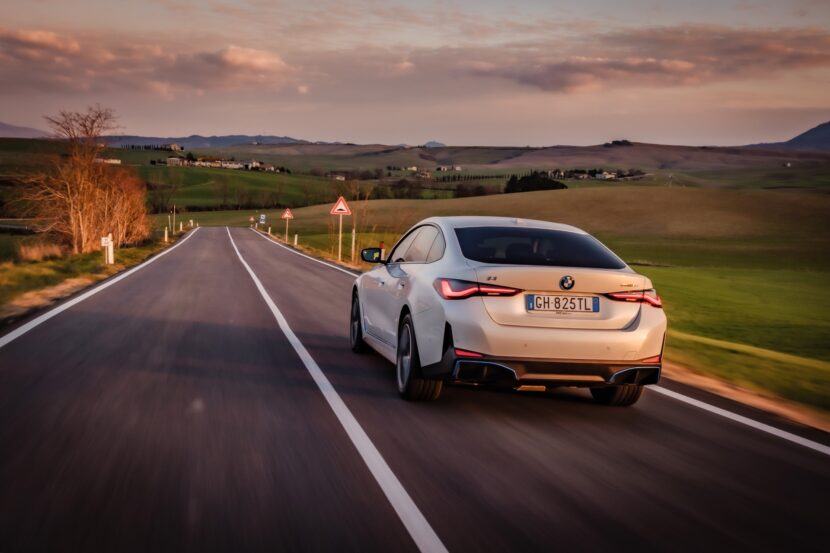
So What’s the Deal? Am I Buying a BMW EV, or Not?
I’m not. My biggest reservation about buying a BMW EV – or any EV – is the charging infrastructure. It’s simply not being maintained the way it needs to be when gas is still a valid alternative. I also struggle to make a financial case for it, especially with the rapidly-disappearing federal tax rebates. Finally, I am technically a Luddite, as I prefer the scream of a naturally-aspirated inline-six to an electric whirring.
You could. My objections are minor in the scheme of things, and there’s a whole demographic of people that would not even consider my “objections” legitimate concerns. The future is inevitable and full of EVs, and though you may not be considered an early adopter anymore – you certainly aren’t late to the party.


